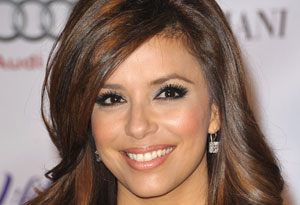Eva Longoria Parker's Aha! Moment

Photo: John Shearer/Getty Images
The Desperate Housewives actress had always thought ethnicity defined her—until a trip to Mexico showed her what she's really about.
I am Mexican-American—I couldn't be any more 50-50. I eat tacos and guacamole, but I love apple pie. I listen to mariachi music, but I also love Justin Timberlake. At my wedding reception, we had a beautiful cake, but we also served pan de polvo, a traditional Mexican wedding cookie.I'm proud to have a Mexican heritage, and I'd always deeply rooted my identity in it. Then, about ten years ago, I went to Mexico to visit the ruins of the Aztec city of Tenochtitlan. I remember thinking before I left, "I can't wait to go to Mexico to learn about my heritage." But when I got there, I was perceived as American because I didn't speak Spanish and at the time knew very little about the history of Mexico. Yet in America, I was considered Mexican because of how I looked and my last name. It was confusing. I thought, "If I'm not Mexican, and I'm not American, who am I?"
When I got home to Texas, I educated myself about my family's history. I studied Latino art, literature, and history and traced my family's genealogy back through Mexico to Spain. I also researched the histories of other ethnic groups in this country. Whether it was African-Americans, German immigrants, or Jews from Europe, I saw that every ethnic group had gone through struggles, but we all still identify ourselves as Americans. My aha! moment came when I realized that my identity is not about where my family came from; instead, it's about who I am and who I want to be. Ever since, I've tried to define myself by the work I do to help others, and by the people who motivate me—the people I look up to.
My mother is one of those people. My older sister, Lisa, is intellectually disabled, and when she was a child, my mother sat with her at school every day to make sure she was learning. My mother later became a teacher's assistant and then a special education teacher. In her 25 years of work, she touched the lives of thousands of students. She taught me to speak for those who are voiceless and to embrace public service as a personal responsibility.
My family's experience inspired me to found Eva's Heroes, an after-school program in San Antonio for young adults with developmental disabilities. Working with these kids, I've seen the excitement a new experience can bring them. Even if it's a small thing, like doing an art project or going bowling, the joy they feel is palpable.
This work has helped me find something bigger than myself, but it has also helped me find my true self. My identity doesn't have to be Mexican; it doesn't have to be American—my philanthropy defines who I really am.
—As told to Crystal Martin







